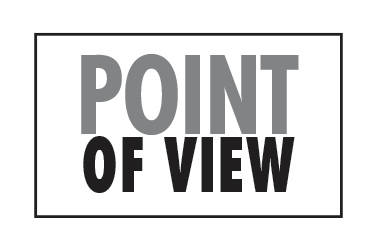Homer News editor’s note: This is part of a series of persuasive essays written by students in Homer High School teacher Sean Campbell’s AP Language and Composition class.
The spelling bee qualifying test had rolled around, my very first formal test in elementary school. Feeling confident and prepared as I entered the test room, I began to sound out the words and easily complete the spelling. The confidence I felt didn’t match the quite awful score I received, which was supposed to resemble my knowledge on spelling. I was labeled as someone who simply couldn’t spell, an incorrect statement based upon a singular test score. Similar to the spelling bee, the SAT labels students by a score, judged upon a student’s knowledge of grammar, vocabulary, reading and mathematical skills within one three-hour period.
The SAT is defined by the Oxford dictionary as a “Scholastic Aptitude Test, a test of a student’s verbal and mathematical skills, used for admission to American colleges,” illuminating the very specific and limited skills present within the questions. By only testing half of the subjects taught in secondary school, the SAT score received by a student is an inaccurate reflection of the student’s overall academic performance. The spelling bee and SAT are very similar, while both hold a lot of credence on a students academic ability, they both fail to provide an overall picture of a student’s academic and learning talents.
Colleges are seeking students who show determination, perseverance, academic strength, and the ability to learn. None of these qualities are quantified in the final four-digit score. Not only does the test fail to measure these qualities, the uneven accessibility to tutoring and resources necessary for students to succeed further taints its fairness. By having expensive tutors and private classes specifically for the SAT, the SAT is another hurdle across the chasm between the upper and lower classes in America. According to Chris Streetman, author of “Abolishing the ACT and SAT” an article published by McKendree University, these tutors and classes are deemed crucial in order to achieve a high test score because if a “student took the test again he or she could just as easily earn a different score,” demonstrating the wide volatility SAT testing encounters while trying to measure the accomplishments and artistry of the student. The SAT should not be a measure of a family’s wealth but instead a measure of a student’s ability to apply their education and talents toward a series of questions and writing prompts.
The reasoning behind these standardized test scores is to obtain a prediction of whether a student will be able to flourish in higher education. However, according to Streetman, “standardized test scores such as the SAT and ACT are worse predictors of a student’s success in college,” exposing how the SAT fails to measure the true future prospects of a student. Standardized tests reveal the skills of students cramming studying into one night and their proficiency in test taking, but “say little about long-term study habits and work ethic.” Inevitably the test says very little about what really matters to colleges, the effort and ability of the students to succeed, illuminating how overemphasized standardized test scores are for the college admission process.
The unpredictable events COVID-19 unleashed sent colleges into a crisis as they attempted to figure out how to adapt to the unavailability of the SAT and ACT testing for high school students. A majority of colleges came to the decision to make the test optional, leaving it up to the individual student to choose whether they wanted to submit their test scores or not. The result was most colleges and universities that made the SAT optional experienced an increase in the number of admission applications. The unique admission process of 2021 illuminates how unimportant the SAT or ACT scores are for universities to make their admission decisions. All colleges were able to adjust their selection process by excluding the test score and focusing on judging an applicant by their grades, extracurricular activities, letters of recommendations, and essays. If colleges continue to be test optional, students who want to show their test-taking strengths can provide that information, but it will no longer harm students whose test scores do not equally match their perseverance, abilities and academic skills.
Aiyana Cline is a graduating senior at Homer High School.

